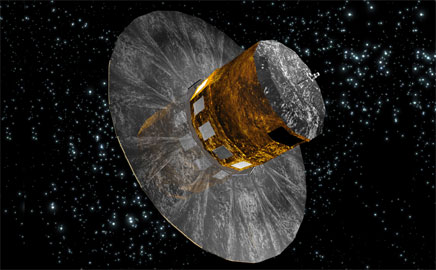|
||||||||||
|
|
||||||||||
|
The primary goal of the Gaia mission is to map our galaxy with unprecedented accuracy. The spacecraft will consist of two highly sensitive telescopes on a common structure orbiting the sun at a distance of nearly 1 million miles from Earth, about four times the distance from the Earth to the moon. Gaia will survey stars and repeatedly collect detailed information about their position, velocity, and photometry. When its mission completes, Gaia will have gathered information on about 1 billion stars, or 1 percent of the Milky Way's star population.
The information from Gaia will be especially useful to planet-hunters, who will able to watch stars for the tell-tale orbital wobbles or variations in light that can indicate the presence of a planet. Gaia will analyze nearby stars closely and may be able to discover thousands of previously unknown, giant exoplanets. For many of these systems, Gaia may be able to discover invaluable information about planet size and orbital inclination, which could help predict the existence of Earth-like worlds orbiting other stars.
|
|||||||||||||||||||||||||||||||||||||||||||||||||||
Privacy/Copyright |
Site Map |
Feedback |
Glossary |
Awards & Credits |
For Educators |
For Press |
Widgets |
|
|


